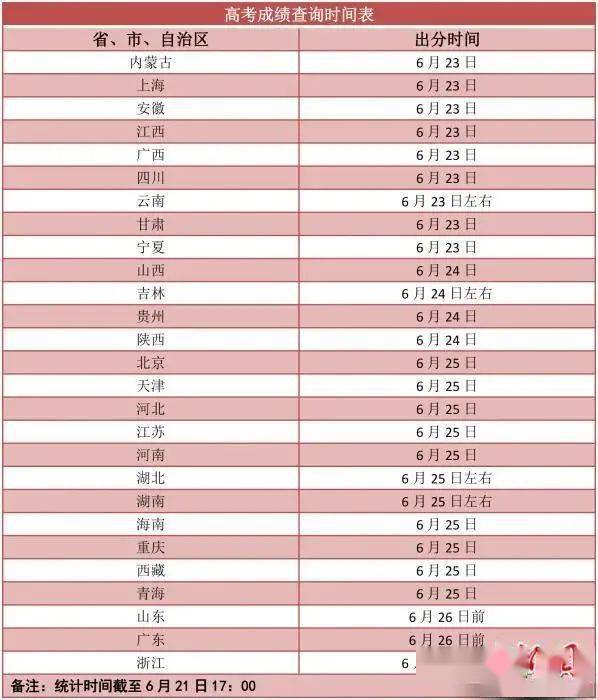Editor’s note: The old Soviet area gave birth to the Chinese revolution and was the original heart of the Chinese Communist Party. General Secretary Xi Jinping once said affectionately: “I came here in such an atmosphere. Many places where I have worked are old districts, and I have deep feelings for the old districts.”
General Secretary Xi Jinping was born into a revolutionary soldier’s family and grew up on the loess slopes of northern Shaanxi. The “red gene” is deeply integrated into his blood. While working in the local area, he has been paying attention to the development of local old districts and the living conditions of the people in the old districts. Since the 18th National Congress of the Communist Party of China, the general secretary’s concern for the old districts has remained the same. He has frequently set foot on the red land to visit and sympathize with the people in the old districts. On the occasion of the 100th anniversary of the founding of the Communist Party of China, the “Learning Everyday” column of CCTV.com launched a special plan “The Red Old District Concerned by the General Secretary”, telling the red story and showing the development and changes of the old district.
△ On June 16, 2015, General Secretary Xi Jinping had a discussion with villagers in Huamao Village, Fengxiang Town, Zunyi County.
Huamao Village, located in Zunyi City, Guizhou Province, was the place where the Red Army passed through the Long March. That year, the Red Army team came to Huamao Village to stay and stay, and held a meeting in the neighboring Gouba Village. The Gouba Conference was another very important meeting after the historical turning point of the Zunyi Conference.
△ On June 16, 2015, General Secretary Xi Jinping visited villagers in Huamao Village, Fengxiang Town, Zunyi County.
In June 2015, General Secretary Xi Jinping visited Guizhou for the first time after the 18th National Congress of the Communist Party of China. Zunyi was the first stop. After visiting the site of the Zunyi Conference, the general secretary walked into Huamao Village to learn about the great changes that have taken place here.
It was midsummer, and in the fields beside the road in Huamao Village, contiguous sunflowers were blooming brightly, and General Secretary Xi Jinping got out of the car and stopped to admire them. According to local officials, with the construction of beautiful villages, Huamao Village with lush mountain flowers has become a wedding photography location, attracting many nearby citizens to take pictures here. There are flowers blooming on the country trails, and the houses on both sides of the road are clean and tidy. The general secretary said with feelings: “No wonder everyone came here and found homesickness here.” △On July 14, 2020, Huamao Village, Fengxiang Town, Bozhou District, Zunyi City, Guizhou Province. What is homesickness? The general secretary once said affectionately that homesickness means that you will miss this place if you leave this place. In fact, Huamao Village, a village where people can “find homesickness”, was formerly called Huangmaotian, which means a poor and barren place. In the last century, poor and barren thatched fields were filled with thatched houses with earth walls. Villagers recalled: “The wind is as strong as the wind outside.” Poverty has forced waves of young people in the village to go out and wander around. With the implementation of the “precise poverty alleviation” strategy, the people of Huamao Village have given full play to their own advantages, focusing on building beautiful villages, developing modern agriculture, rural tourism, and inheriting innovative ceramic-making skills. In the past, about 2,000 people in Huamao Village, with more than 4,000 people, went out to work; by 2020, only about 300 villagers will still work outside the province. Villagers who go out to work have returned to their hometowns to start their own businesses. “Employing at home is good, but you can also take care of the old and the young” as everyone’s mantra. In 2020, Huamao Village received 1.02 million tourists, and the per capita disposable income of villagers reached 20,400 yuan. The incidence of poverty has dropped to zero in 2019. This beautiful old village, with its lush and leafy village name, is worthy of its name! △February 28, 2020, “Red House” Farmhouse in Huamao Village, Fengxiang Town, Zunyi City, Guizhou Province. In the beautiful Huamao Village, small white buildings are scattered all over the place. Among them is a farmyard with four eye-catching red characters “Red House” written on the white exterior wall. This is the courtyard where the Red Army stayed in Huamao Village and the first farmhouse in the village. During his trip to Guizhou in 2015, General Secretary Xi Jinping came to the “Red House” farmhouse and chatted with the villagers in the courtyard. “What do you grow at home?” “How is the land management?” “How is the farmhouse?” … The general secretary asked meticulously and intimately. The villagers of Huamao Village and the general secretary sat and chatted together, and each of them had a happy smile on their faces. The general secretary said with satisfaction: “The support of the masses is an important criterion for our inspection work. Whether the policy formulated by the Party Central Committee is good or not depends on whether the villagers cry or laugh. If they laugh, it means the policy is good. If someone is crying, we will do it. It should be noted that what needs to be corrected must be corrected, and what needs to be improved must be improved.” The warm words of the general secretary came into the hearts of the villagers in Huamao Village. Since the 19th National Congress of the Communist Party of China, Huamao Village has formulated a local “village revitalization” plan, focusing on the development of rural tourism, agricultural industry, and characteristic culture, and strive to make Huamao Village a paradise for prosperity, a rich pastoral and a homesick home. A beautiful village that bears the affection of military and civilian fish and water, has now become a place where people “will not want to go when they come”. (China Central Radio and Television Station CCTV Network)





























































You must log in to post a comment.